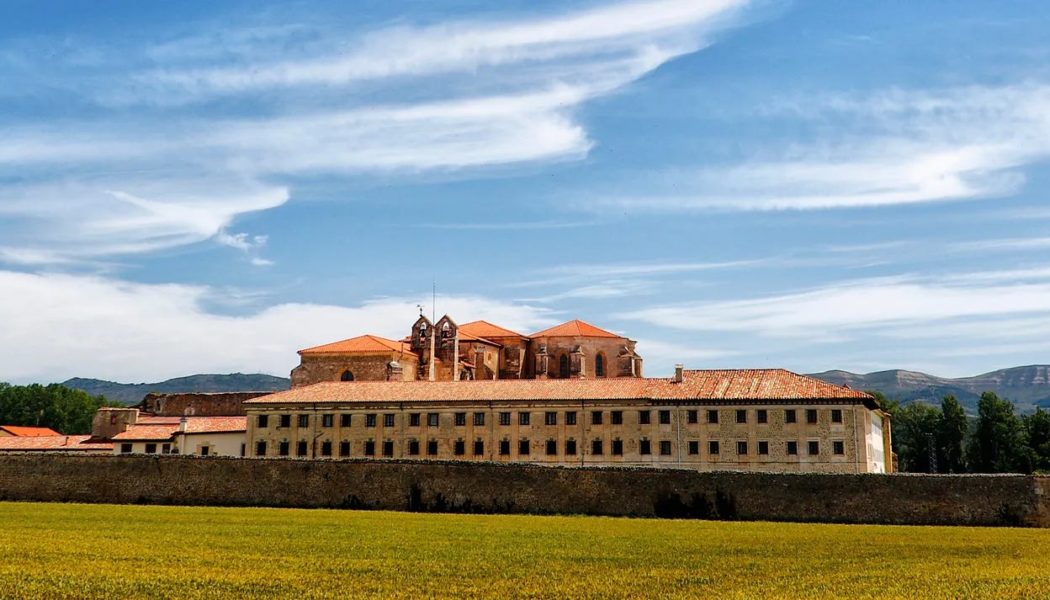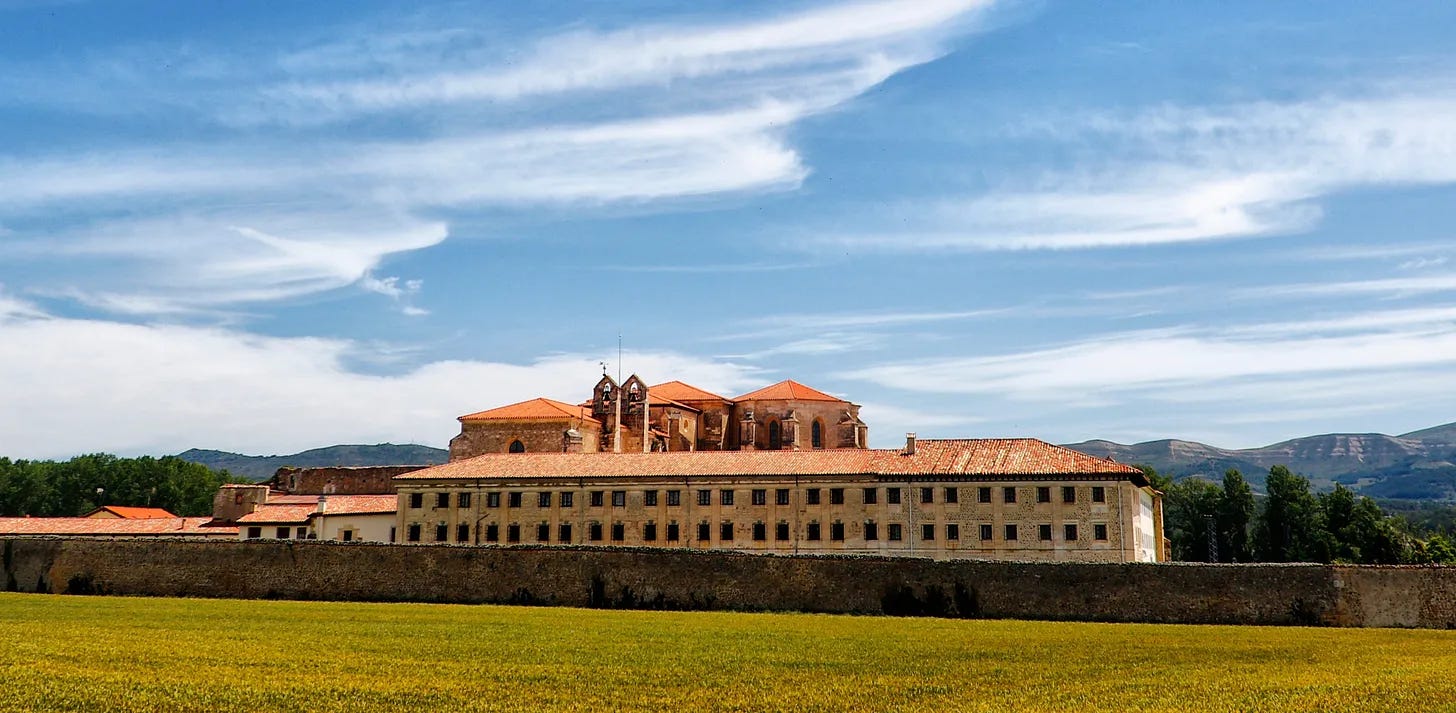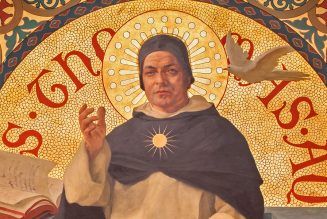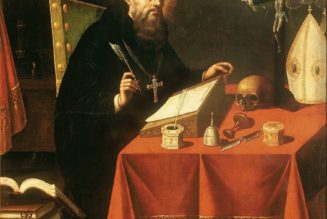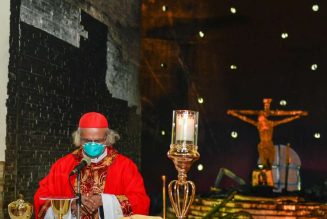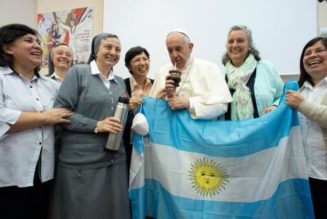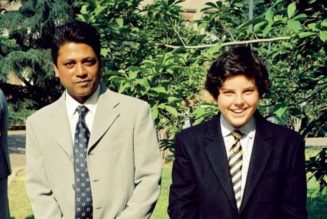Nuns at a Spanish convent accused of embracing schism have been given a June 21 deadline to appear before a Church tribunal, as they face the prospect of excommunication.
Three of the nuns, from the Poor Clare convent of Belorado, Spain, were originally expected to appear before the tribunal by June 16, but received an extension, sources close to the case explained to The Pillar.
The nuns announced a separation from the Catholic Church in May of this year, by claiming to fall under the jurisdiction of an excommunicated sedevacantist self-proclaimed bishop, rather than the governance of their actual territorial bishop.
Ten of the 16 nuns of the convent are in the midst of excommunication proceedings. The Archdiocese of Burgos decided not to include five of the older nuns in the proceedings. Another, Sister María Amparo, asked to leave the community when she learned of the community’s plans to leave the Church.
Three of the sisters, including the abbess of the community, had a June 16 deadline to appear before the tribunal, and the rest had a deadline of June 21. But the archdiocese decided to extend the deadline to June 21 for all sisters.
A source close to the case told The Pillar that the nuns requested the June 21 deadline and not a later one, information that a diocesan official also confirmed to The Pillar.
The reason for the request is unknown.
But it does represent the first time the nuns have given any conciliatory signs since announcing their separation from the Church.
Sources close to the case told The Pillar that the archdiocese suspects that not all the nuns are aware of the seriousness of the case, especially the older ones. That is why the Archdiocese of Burgos decided not to prosecute the older nuns and why it insisted that the nuns appear before the ecclesiastical tribunal individually.
In fact, the signatures of the older sisters are not included on the documents in which the nuns explain their decision to separate from the Church. Nor have they appeared in the interviews the community has given.
For that reason, the archdiocese believes that they are probably unaware of the situation, in addition to potentially having reduced mental capacities.
In fact, in its last statements, the Archdiocese of Burgos said that “once the deadline is met, we will proceed accordingly depending on what each of them says individually.”
According to their public statements, the nuns have seemed to incur an excommunication latae sententiae, but the penalty has not been formally declared by the Church.
The process opened by the archdiocese seeks that the nuns retract or explain their position. If they do not appear before the tribunal or retract the statement, the Archbishop Mario Iceta of Burgos is likely to sign a decree of excommunication, and the nuns would then be expelled from consecrated life, according to canon 1364.1 of the Code of Canon Law.
That act would mean that the nuns would be canonically required to leave the convent in which they live, which is the property of the religious order to which they no longer belong.
Spanish law allows that if the nuns decide not to leave, an eviction process could be initiated.
Sources with knowledge of the case told The Pillar that the nuns’ economic situation has markedly deteriorated since their statement.
The community supported itself by selling sweets and pastries. The sweets were well-known in the region and regularly promoted through Catholic media.
Since their May statement, the outlets promoting the products have refused to continue to do so, impacting the community economically.
The sedevacantist self-identified bishop who received them, Pablo de Rojas Sánchez-Franco, was believed to have ample financial means at his disposal.
But local media have suggested that his reality is quite different than public perception.
The only properties in the name of the ‘Pía Unión San Pablo Apóstol,’ the entity founded by Rojas, are a house in the city of Palencia, which used to be a veterinary clinic and a 2008 Kia Opirus purchased thirdhand.
Rojas’ priestly and episcopal status is contentious.
He claims to have been ordained a priest in 2005, by a German former Jesuit, Derek Schell, who was himself ordained in the Palmarian Church, a sedevacantist community in Spain.
Then, Rojas was allegedly consecrated a bishop by Schell in 2006.
However, he also claims to have been ordained a priest and consecrated a bishop sub conditione by Ricardo Subirón in 2010.
Rojas would be excommunicated in 2019 after presenting himself as a bishop and looking to celebrate Masses in parishes in the city of Bilbao despite warnings from the diocese not to do so.
The bishop of Bilbao back then was Mario Iceta. Iceta is now the archbishop of Burgos, dealing with the situation with the Poor Clares of Belorado.
Schell and Subirón had been consecrated as bishops by Clemente Domínguez, who claimed to be Pope Gregory XVII of the Palmarian Church in 1976, and Domínguez had in turn been consecrated a bishop by the Vietnamese excommunicated archbishop Pierre Martin Ngô Đình Thục. Moreover, Subirón would also be consecrated sub conditione by Thuc himself in 1977.
Rojas alleges his full name is Pablo de Rojas Sánchez-Franco. However, local media reported that his actual name is just Pablo Rojas Sánchez. Both the particle “de” and composed surnames are common among people from aristocratic families in Spain. He apparently also added the “Franco” due to his love for Spanish dictator, Francisco Franco.
—
On Sunday, the Poor Clares of Belorado posted an Instagram story depicting Rojas praying the consecration prayers of the Mass. The nuns captioned the post with the fifth-century Christian adage, “The law of prayer is the law of belief.”
The nuns’ public position has not shown any signs of becoming more conciliatory since their May 13 announcement that they were separating from the Church.
The announcement came in the form of a letter sent to friends and beneficiaries and posted on the convent’s website.
In it, Sister Isabel de la Trinidad, superior of the community, said that “from the Throne of Peter we have been receiving contradiction, confusion and doublespeak, ambiguity, lack of clear doctrine which is all the more necessary in stormy times, to hold the rudder more firmly.”
“During this time the sisters, each in her own style, way and rhythm, have been contemplating a question, a doubt about the one who steers the Barque of Peter, and his closest collaborators. A doubt which, in time, became SCANDAL” [emphasis in the original].
The letter also mentions a real estate dispute, since the Vatican blocked the sale of an empty monastery of the community in Derio.
According to the letter, this sale would have allowed the community to buy a monastery in the town of Orduña, which, in the nuns’ opinion, is a conspiracy to dismantle “traditionally-minded communities and keep their real estate to sell.”
Although the superior insisted the decision was unanimous, one of the nuns left the community because she was not in favor of the schism.
Sister María Amparo said in an interview in late May that several of the nuns had not been aware of the decision beforehand.
“I was watched the whole time so that I wouldn’t be able to speak to the older sisters,” she added. “They didn’t even let me say goodbye to them. They probably don’t even realize I left. But it was a firm decision. I had to leave, to avoid being a part of that cult.”
Comments 4
Services Marketplace – Listings, Bookings & Reviews
